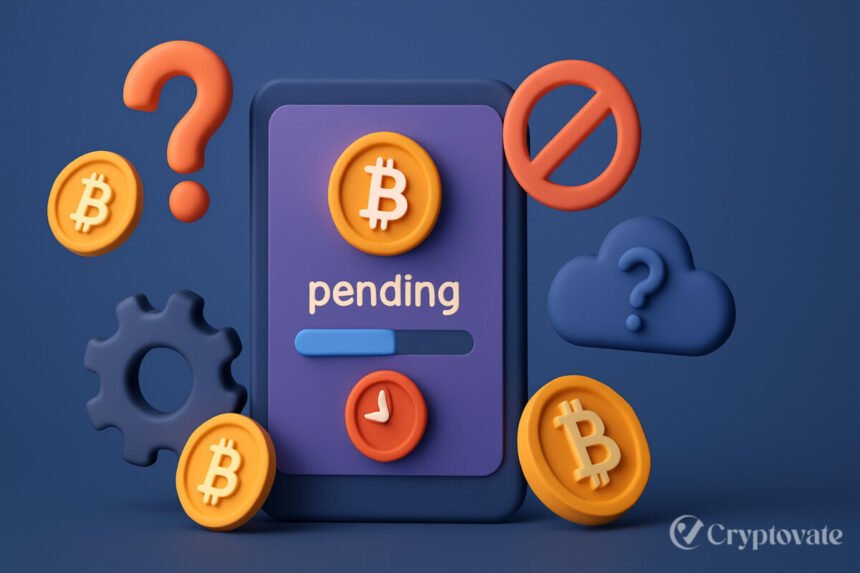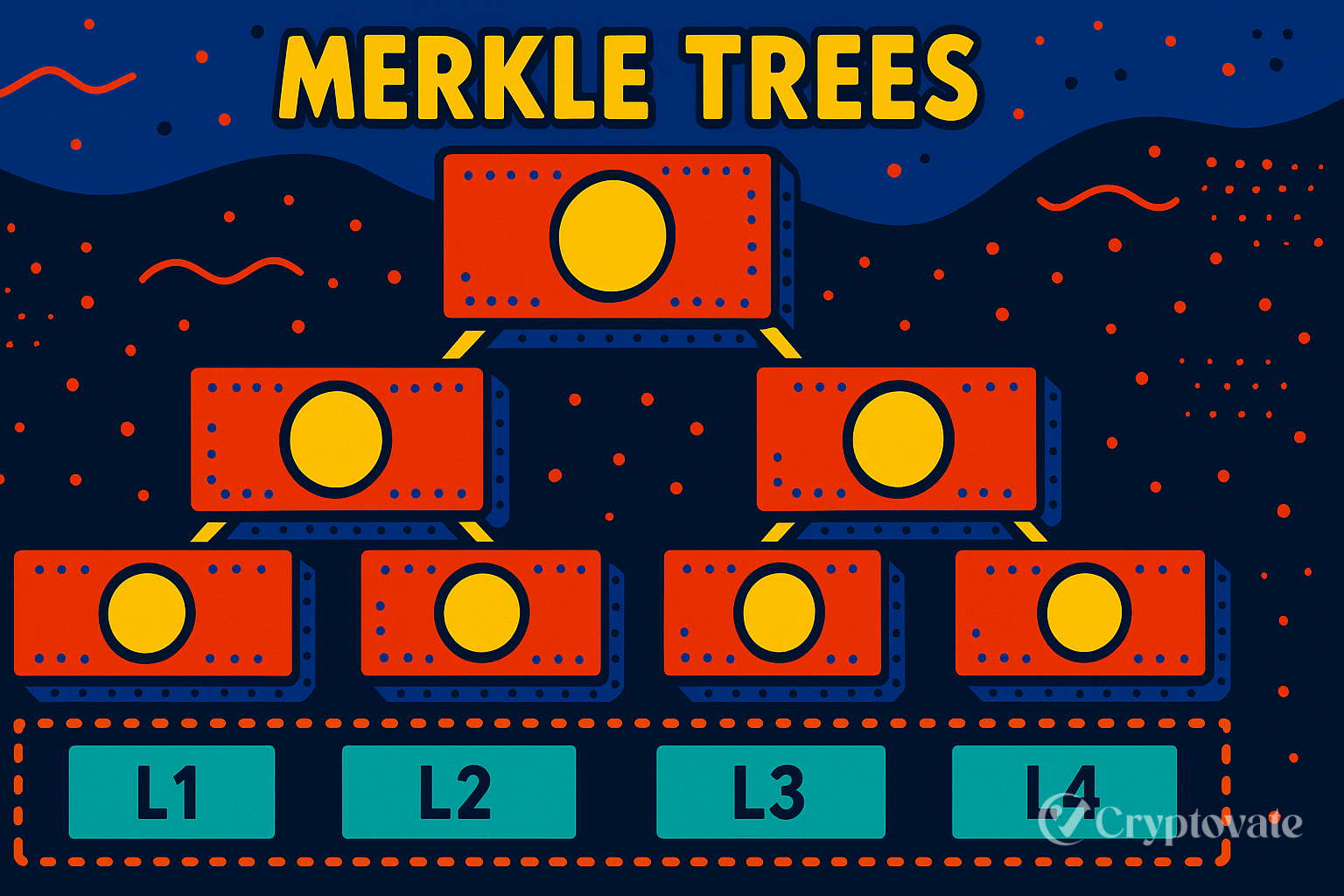– Ad –
| Getting your Trinity Audio player ready... |
Cryptocurrency transactions are designed to be fast and secure, but sometimes they get stuck in a “pending” state, leaving users frustrated and wondering what went wrong. A pending crypto transaction means it hasn’t been confirmed by the blockchain network yet, and funds remain in limbo. This article explores the common reasons behind pending crypto transactions and provides practical solutions to resolve them. Whether you’re a beginner or an experienced crypto user, understanding these issues can help you navigate the blockchain world more effectively.
What Does a Pending Crypto Transaction Mean?
When you send cryptocurrency, such as Bitcoin or Ethereum, the transaction is broadcast to the blockchain network. Miners or validators must confirm it before it’s added to the blockchain, making it official. A pending transaction is one that’s still waiting for this confirmation. Depending on the blockchain, confirmation can take anywhere from a few seconds to hours—or even days in extreme cases. Let’s dive into the most common reasons for these delays and how to address them.
Common Causes of Crypto Transactions Pending
1. Network Congestion
Blockchain networks like Bitcoin and Ethereum handle thousands of transactions at once. During times of intense activity, such as market fluctuations or large NFT launches, the network can experience congestion. This creates a backlog of transactions waiting to be confirmed, leading to delays.
Fix: Increase the transaction fee (gas fee for Ethereum) when sending your crypto. Higher fees prioritize your transaction, as miners prefer transactions with better rewards. Most crypto wallets allow you to adjust fees before sending. Alternatively, wait for network activity to decrease, though this can be unpredictable.
2. Low Transaction Fees
Miners prioritize transactions based on the fees attached. If you set a low transaction fee, your transaction may remain pending for a long time, especially during busy periods. This is a common issue for users who manually set fees to save costs.
Fix: Use your wallet’s recommended fee settings or opt for a “fast” transaction option, which automatically calculates a competitive fee. For Bitcoin, tools like mempool.space can help you estimate appropriate fees based on current network conditions. For Ethereum, check gas trackers like Etherscan’s Gas Tracker to gauge optimal gas prices.
3. Insufficient Wallet Balance
If your wallet doesn’t have enough funds to cover both the transaction amount and the associated fees, the transaction may get stuck or fail to process. This is especially common on Ethereum, where gas fees can be high.
Fix: Ensure your wallet has sufficient funds for both the transaction and fees. Double-check your balance before initiating a transfer. If you’re short on funds, add more cryptocurrency to your wallet or reduce the transaction amount to accommodate the fees.
4. Blockchain-Specific Issues
Different blockchains have unique characteristics. For example, Bitcoin transactions require multiple confirmations (usually 6) for full validation, which can take time. Ethereum’s gas limit settings or smart contract interactions can also cause delays if not configured correctly.
Fix: Research the specific blockchain you’re using. For Bitcoin, ensure you’re allowing enough time for confirmations. For Ethereum, verify that your gas limit is sufficient for the transaction type (e.g., token transfers or smart contract interactions often require higher gas limits). Tools like Etherscan can help track transaction status.
5. Wallet or Exchange Issues
Sometimes, the issue lies with your crypto wallet or exchange platform. Outdated wallet software, sync issues, or internal processing delays on centralized exchanges can cause transactions to remain pending.
Fix: Update your wallet software to the latest version and ensure it’s fully synced with the blockchain. If using an exchange, check its status page for any reported outages or delays. If the problem continues, reach out to customer support with your transaction ID (TXID) for quicker assistance.
6. Incorrect Transaction Details
Entering incorrect recipient addresses, memo tags, or other details can cause a transaction to fail or remain pending. For example, some blockchains like Stellar or Ripple require a destination tag for certain transactions, and omitting it can lead to delays.
Fix: Double-check all transaction details before sending. Ensure the recipient address is correct and includes any required tags or memos. If you’ve made an error, contact the recipient platform or your wallet’s support team to see if the transaction can be recovered or resubmitted.
7. Node Connectivity Issues
Cryptocurrency wallets rely on nodes to broadcast transactions to the blockchain. If your wallet is connected to a faulty or overloaded node, your transaction may not propagate properly.
Fix: Switch to a different node in your wallet settings, if possible. Some wallets allow you to manually select a node or use a default one with better connectivity. Restarting your wallet or device can also help re-establish a stable connection.
Also Read: How to Diversify Your Crypto Portfolio in 2025: Strategy & Tips
How to Prevent Crypto Transactions Pending
To minimize the chances of future delays, follow these best practices:
- Monitor Network Conditions: Use tools like mempool.space or Etherscan to check network congestion and adjust fees accordingly.
- Use Dynamic Fee Settings: Most modern wallets suggest optimal fees based on real-time network data. Stick to these recommendations unless you’re an advanced user.
- Keep Your Wallet Updated: Regularly update your wallet software to avoid compatibility issues.
- Plan Transactions in Advance: Avoid sending transactions during peak network times, such as major market events, to reduce delays.
- Track Your Transaction: After sending, use a blockchain explorer (e.g., Blockchain.com for Bitcoin, Etherscan for Ethereum) to monitor your transaction’s status using its TXID.
What to Do If Your Transaction Is Stuck for Too Long
If your transaction remains pending for an unusually long time (e.g., hours for Bitcoin or Ethereum), consider these steps:
- Replace-by-Fee (RBF): For Bitcoin, some wallets support RBF, allowing you to resend the transaction with a higher fee to speed up confirmation.
- Accelerate the Transaction: Some mining pools offer paid transaction accelerators, or you can use services like ViaBTC to prioritize your Bitcoin transaction.
- Contact Support: If the issue persists, reach out to your wallet or exchange’s support team with your TXID for assistance.
- Wait It Out: In some cases, especially with low-fee transactions, waiting a few hours or even days may resolve the issue as network congestion clears.
Conclusion
Pending crypto transactions can be frustrating, but understanding the causes—such as network congestion, low fees, or wallet issues—empowers you to take action. By setting appropriate fees, double-checking transaction details, and staying informed about network conditions, you can minimize delays and ensure smoother transactions. If problems persist, tools like blockchain explorers and wallet support can help you resolve issues quickly. Stay proactive, and your crypto transactions will flow more seamlessly.
FAQs
How long does a pending crypto transaction take to confirm?
The time varies by blockchain. Bitcoin transactions typically take 10–60 minutes, depending on fees and network congestion. Ethereum transactions usually confirm within seconds to minutes, but high gas fees or complex transactions can extend this time.
Can I cancel a pending crypto transaction?
Most blockchain transactions are irreversible once broadcast. However, if the transaction is still pending, some wallets support Replace-by-Fee (RBF) to resend with a higher fee. Contact your wallet provider for specific options.
Why is my transaction pending even with a high fee?
Even with a high fee, network congestion or wallet/node issues can cause delays. Check the blockchain explorer for your transaction’s status and ensure your wallet is properly synced.
What happens if my transaction never confirms?
Unconfirmed transactions might eventually be removed from the network’s mempool and returned to your wallet, which could take days or weeks depending on the blockchain. Always monitor your transaction and reach out to support if necessary.

















